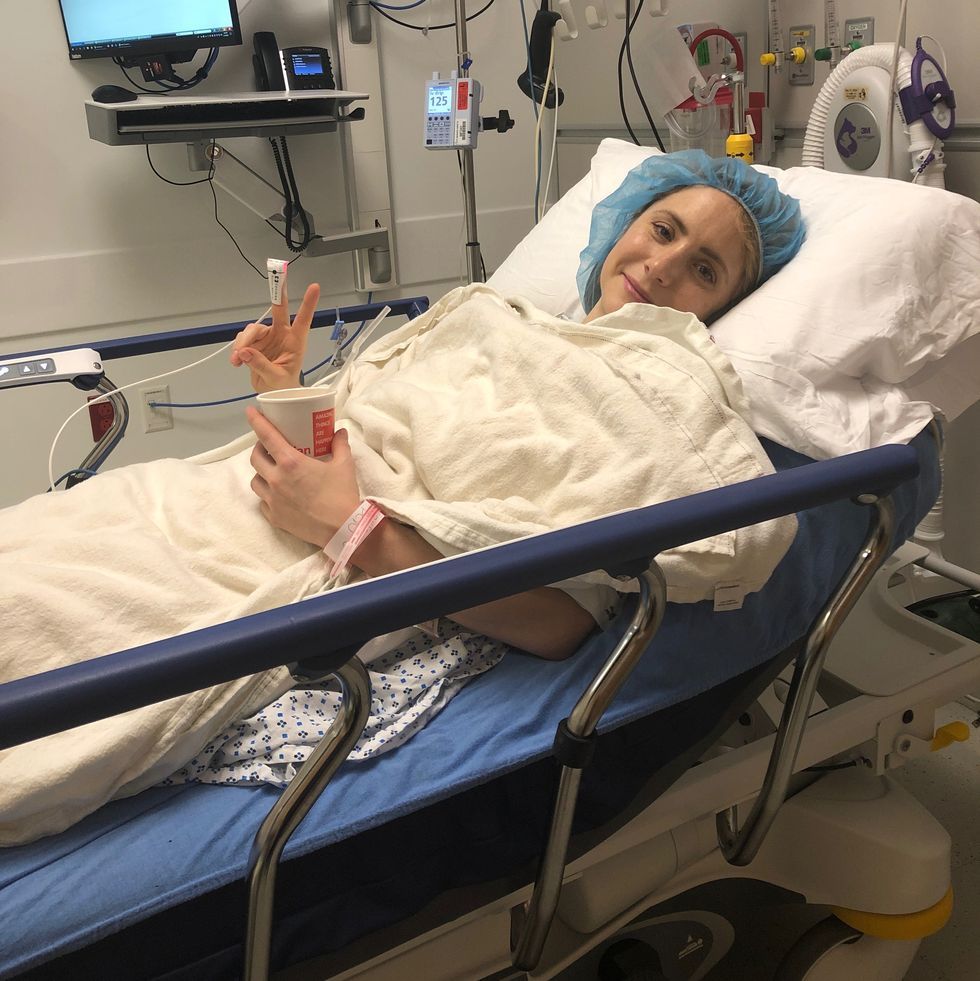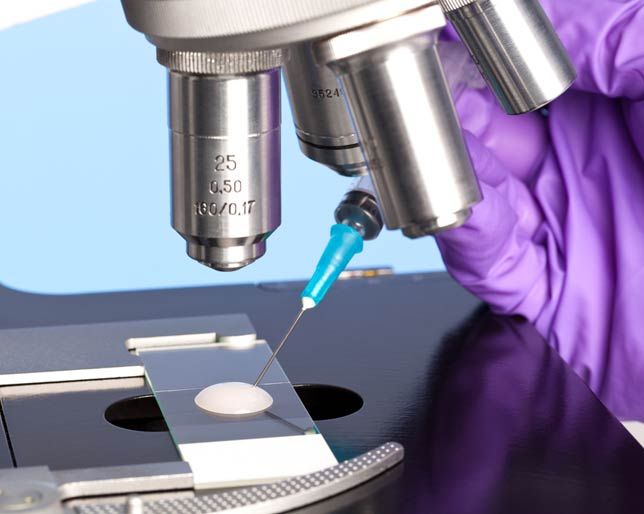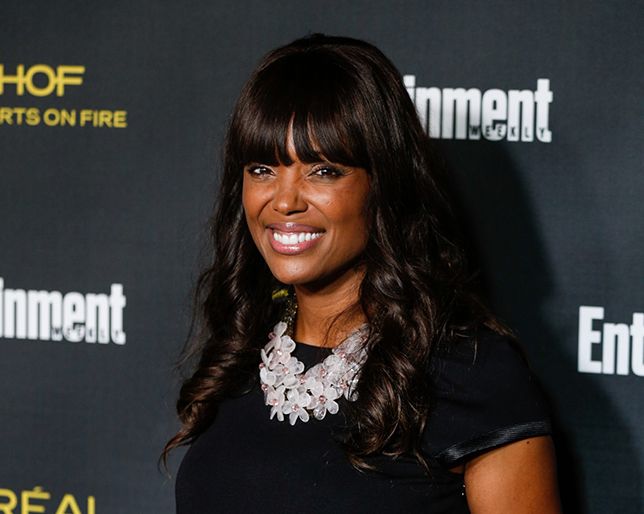- Erin Andrews shared a very personal story with fans this week: She’s on her seventh round of in-vitro fertilization (IVF).
- The sports broadcaster, 43, opened up about her IVF journey in a moving essay on her blog, The Real Deal with Erin Andrews, noting that she’s been doing IVF since she was 35.
- IVF, in case you’re not familiar with it, is a form of assisted reproductive technology where sperm from your partner or a donor is matched with your egg or a donor egg to create an embryo in a lab.
Erin Andrews shared a very personal story with fans this week: She’s on her seventh round of in-vitro fertilization (IVF).
The sports broadcaster, 43, opened up about her IVF journey in a moving essay on her blog, The Real Deal with Erin Andrews, noting that she’s been doing IVF since she was 35.
“I have been trying to do IVF treatment for a while now, but sometimes it doesn’t go the way you want it. Your body just doesn’t allow it,” she said. “Every cycle is different in a woman’s body, so some months are better than others.” Erin also said that, at 43, “my body is kind of stacked against me.”

IVF, in case you’re not familiar with it, is a form of assisted reproductive technology where sperm from your partner or a donor is matched with your egg or a donor egg to create an embryo in a lab. That embryo is then implanted in your womb, where the hope is that it will end up in a successful pregnancy.
IVF is expensive and emotionally and physically draining, and the odds of success depend on a lot of factors, including a woman’s age. The success rate is around 50% at age 30, according to the Centers for Disease Control and Prevention, 21%for women in their late 30s, 11% in women 41 to 42, and lower after that.

Erin, who is married to former NHL player Jarret Stoll, pointed out that it’s been tricky to try to juggle her IVF around her work schedule.
“When I heard this was the best time to go through another treatment, I had to figure it out all over again. How am I going to juggle this treatment on top of my work schedule? I got so stressed out. When this happens, it really makes you question: Is it the future of my family or is it my job?”
In the past, Erin said, she felt like she needed to keep her IVF quiet. “But no, there are so many other women who maybe put their careers on the back burner because they don’t want to miss out on any opportunities,” she said. “It’s so common that people are starting families late and put so many other aspects of their lives on hold.”
So, Erin said, she decided to be open with her show producers about why she would have to come to work a little later than normal.

“And I am thankful I did it,” she said. “They encouraged me to be open about it because this is real life. It’s not like I’m leaving to go take a hot yoga class, I’m trying to have a baby. I am not ashamed, and I want to be vocal and honest about this.”
Erin also pointed out that she’s not exactly feeling great right now.
“The entire treatment takes such a mental and emotional toll on your body,” she said. “You feel like shit. You feel bloated and hormonal for a week and a half. You could go through this whole experience and get absolutely nothing out of it — that’s the crazy part. It’s a ton of money, it’s a ton of time, it’s a ton of mental and physical anguish. And more times than not, they’re unsuccessful.”

This isn’t the first time Erin has opened up about her personal health: She shared in 2017 that she was diagnosed and treated for cervical cancer the year before.
The comments of Erin’s blog post were flooded with messages of support, including from people who had success with IVF. “I have 27 year old twin boys, it took 2 IVF cycles. To this day, I remember the emotional rollercoaster that comes with IVF,” one wrote. “Wishing you the best of luck and remember you have a whole new team to reach out to when needed!”
“Kudos to you for changing the conversation,” someone else wrote. “You have an amazing focus on what you want; I’m sure your luck will change soon. Stay encouraged. We are all behind you.”

Erin noted that she’s hardly the first woman to go through IVF, and urged people to try to have compassion for others who might be going through the same thing.
“The fertility clinic can sometimes be so full, it’s heartbreaking, but we really aren’t alone here,” she said. “You never know who else is going through this; it could be another co-worker or the person making your coffee every day. There are more people than you think.”
Source: Read Full Article
